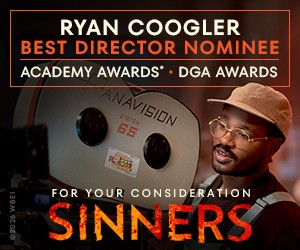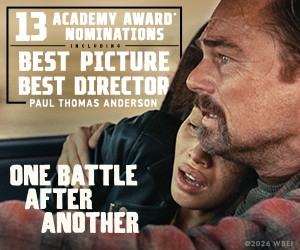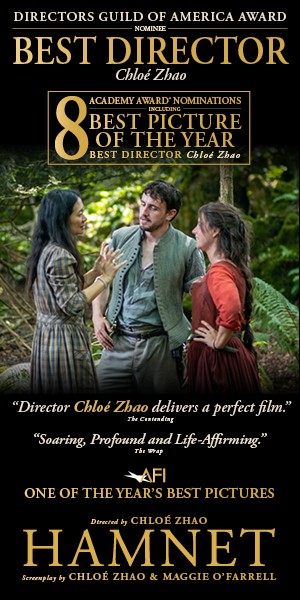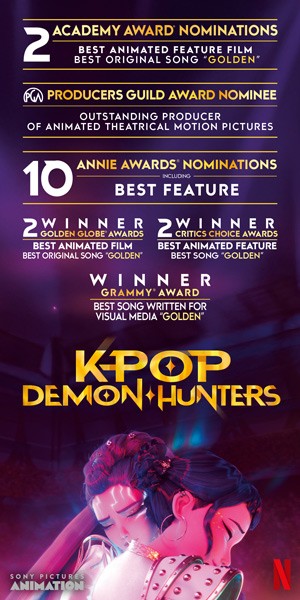In the history of the DGA, only eight other individuals have been honored with the Guild’s Lifetime Achievement Award in Sports Direction. Director member Joe Aceti is pleased to be the ninth recipient of this honor, but had he not listened to his wife’s instincts forty years ago, chances are there might be some other name on the prestigious award.
“In 1965 I was working in the film department at ABC when a there was a job opening in the sports programs department to be the PA for Jackie Robinson, who was one of the announcers for the baseball game of the week,” Aceti recalls. “I wasn’t going to apply for it because I already had a steady job and it was only a six-month job. But my wife convinced me to try and I got it. When baseball season ended, football season started and I ended up spending 38 years in that ‘temporary job.’”
Aceti fondly recalls those early experiences working for the celebrated baseball figure. “We would do the telecasts on Saturday afternoon, but on Friday nights we would go to the park and I would watch baseball with Jackie Robinson, who you know is a legend and not just a ballplayer. I remember calling my wife one time and saying, ‘You know, going to a baseball game with Jackie Robinson is like a religious person going to church with Jesus. This job is so great, I would do it for nothing.’ My wife said, ‘You are doing it for nothing.’ It only paid about $100 a week but it was a wonderful opportunity and four years later I got a better paying job as an Associate Director. I really enjoyed being an AD because I traveled a lot, worked on a lot of television shows all around the world and it gave me the opportunity to see what directors do. During the ‘70s, ABC owned sports. Everything that was big in sports was on our network.”
Aceti’s first job as a director came when he helmed a special on the history of college football in 1969. “The show was called What the Cheering Was All About: College Football’s First 100 Years. We did pretty well on that show. We had original music composed. We had interviews with men who played in legendary games, and a section on guys who screwed up like Roy ‘Wrong-Way’ Riegels, who ran the wrong way in the Rose Bowl and his own team had to tackle him on the five-yard line. We took a shot from the actual archival footage of him on one knee with his back to the camera, and it dissolved to a shot of him live as an old gray-haired man there at the Rose Bowl. He turned around and looked at the camera and said, ‘My wife always said I had a bad sense of direction.’ It was a well received show and I was very happy with it.”
Aceti’s on-the-job experiences could easily serve as the material for its own sports history special. He was at most of the seminal sporting events of the last few decades such as the 1968 Mexico City Olympics, which he referred to as “the finest and most exciting summer games I ever worked at. Records were broken in practically every event.” Conversely, during the 1976 winter games in Innsbruck, Austria, Aceti faced a completely different Olympian challenge.
“Before we went there we had a big meeting with ABC Sports President Roone Arledge, and he was trying to figure out a way to make it exciting because there were no big stars from America with the exception of Dorothy Hamill who won the gold medal in figure skating and a guy named Bill Koch, who won the 10,000 meter cross country silver medal. We had 21 days of six-hour telecasts and had to find a way to make it interesting. We did it with beauty and pictures of the Alps and Innsbruck and it did very well in the ratings. It turned out to be my favorite Winter Olympics.”
Aceti’s has opposite feelings about the 1972 summer Olympic games in Munich, Germany where eleven Israeli athletes are taken hostage and murdered by a Palestinian terrorist group known as Black September. “Munich was one of the least favorite memories of my life. You know about what happened to the athletes, but while I was there, my dad passed away. I had to go to the airport to fly back to the States and when I was in the airport I was watching the televised funeral for the athletes. There couldn’t be a worse feeling. I got home and they wanted me to come back for the second week of the Olympics, but I couldn’t go back. To be honest, I’ve never gone back. I had terrible nightmares about it for a long time. I always thought they should have cancelled those games.”
Although the Olympic games are part of the highlights of a storied career, Aceti’s resume reads like a wish list for sports fans. He’s worked for all four major networks on every type of major sport event including: the 1990, 1991 and 1992 World Series and numerous Playoff Series, World Figure Skating Championship from 1983-1990, the U.S Open Tennis Tournament from 1984-87, NBA and NCAA basketball, NFL and collegiate football, Major League and Collegiate baseball and 10 years of directing ABC's Wide World of Sports with some 300 shows as the coordinating director. With 80 major boxing matches on his credits, Aceti was also the guiding hand behind the broadcasts of some of the all time greatest bouts including, Ali vs. Frazier aka “The Thrilla in Manila,” Ali vs. Spinks II, Cooney vs. Holmes and Hearns vs. Duran. “I worked with Howard Cosell so we went everywhere. Those were my favorite events because they were more than the sporting event, they were historic.”
If sports can be a metaphor for life, then it’s true that it also reflects the tragedies as well as the triumphs and Aceti’s life, just like the sports he’s covered has experienced both. But difficult as some of his memories are, receiving the acknowledgement of his peers for a lifetime behind the sports camera gives Aceti a sense of pride. He is looking forward to attending the ceremony alongside his wife Barbara and daughter Jessica, who provided the stable homefront while his job took him around the world.
Looking back on it all Aceti offers, “I think I did a good job, but the thing I’m most proud of is that I was able to help so many young people during my career. I’ve never been afraid to pass on what I know and I tried to be fair and kind to people. Some sports directors are known for being a little tough, and I wasn’t and I think that’s the lesson. If you’re angry and mean and yelling at people all the time, you’ll think you’ll succeed but you won’t really, because the people who’re working for you will never really like you. My wife has a saying, ‘You can’t be a teacher and not be kind.’ I think she’s right





